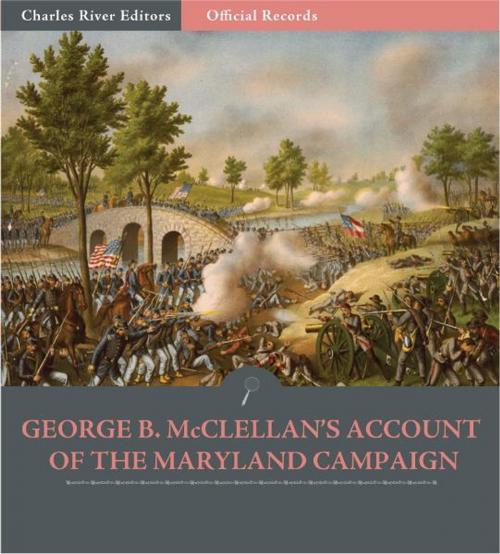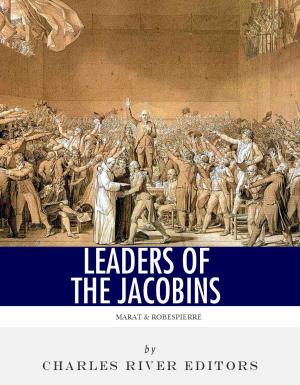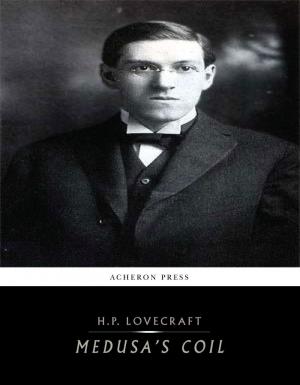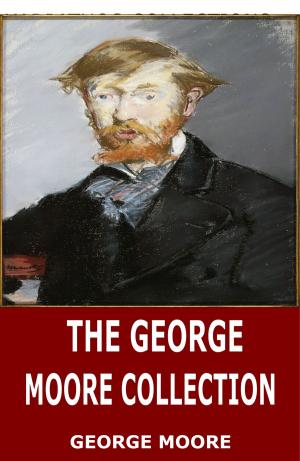Official Records of the Union and Confederate Armies: General George B. McClellans Account of the Maryland Campaign
Nonfiction, History, Americas, United States, Civil War Period (1850-1877), 19th Century, Military| Author: | George B. McClellan | ISBN: | 9781619825215 |
| Publisher: | Charles River Editors | Publication: | February 15, 2012 |
| Imprint: | Language: | English |
| Author: | George B. McClellan |
| ISBN: | 9781619825215 |
| Publisher: | Charles River Editors |
| Publication: | February 15, 2012 |
| Imprint: | |
| Language: | English |
George Brinton McClellan (December 3, 1826 October 29, 1885) was a major general during the Civil War, famous (and notorious) for organizing and commanding the Army of the Potomac. But although McClellan was meticulous in his planning and preparations, these characteristics are largely viewed as making him an ineffective battlefield commander, and he has been criticized frequently leaving large portions of his army unengaged at decisive points. Viewed as a prodigy at West Point and hailed as the Young Napoleon in 1861, McClellan went about training the Army of the Potomac, but his Peninsula Campaign in 1862 ended in failure, with retreats from attacks by General Robert E. Lee's smaller Army of Northern Virginia and an unfulfilled plan to seize the Confederate capital of Richmond. His performance at the bloody Battle of Antietam blunted Lee's invasion of Maryland, but allowed Lee to eke out a precarious tactical draw and avoid destruction, despite being outnumbered. As a result, McClellan's leadership skills during battles were questioned by U.S. President Abraham Lincoln, who eventually removed him from command, first as general-in-chief, then from the Army of the Potomac. Lincoln offered this famous evaluation of McClellan: "If he can't fight himself, he excels in making others ready to fight." McClellan was the most popular of that army's commanders with its soldiers, who felt that he had their morale and well-being as paramount concerns. General McClellan also failed to maintain the trust of Lincoln, and proved to be frustratingly derisive of, and insubordinate to, his commander-in-chief. After he was relieved of command, McClellan became the unsuccessful Democratic nominee opposing Lincoln in the 1864 presidential election. His party had an anti-war platform, promising to end the war and negotiate with the Confederacy, which McClellan was forced to repudiate, damaging the effectiveness of his campaign. He later served as the Governor of New Jersey from 1878 to 1881 and eventually became a writer, defending his actions during the Peninsula Campaign and the Civil War. However, his untimely death quelled his ability to write more, and his reputation was largely tarnished over time. More recently, McClellans reputation has been on the upswing among modern historians. Some historians maintain that he was a highly capable commander, but that his reputation suffered unfairly at the hands of pro-Lincoln partisans who needed a scapegoat for the Union's defeats. After the war, Ulysses S. Grant was asked to evaluate McClellan as a general. He replied, "McClellan is to me one of the mysteries of the war." Naturally, as leader of the Army of the Potomac, McClellan wrote an official account of the Maryland Campaign, and it was preserved in The War of the Rebellion: Official Records of the Union and Confederate Armies. McClellans account is very brief, and, not surprisingly, he overstated the damage done to the Army of Northern Virginia. The Maryland Campaign would prove to be his last, as Lincoln fired him for not pursuing Lee after the Battle of Antietam. This edition includes McClellans official account and the correspondence that led to his removal from command. It also includes pictures of the important commanders of the battle.
George Brinton McClellan (December 3, 1826 October 29, 1885) was a major general during the Civil War, famous (and notorious) for organizing and commanding the Army of the Potomac. But although McClellan was meticulous in his planning and preparations, these characteristics are largely viewed as making him an ineffective battlefield commander, and he has been criticized frequently leaving large portions of his army unengaged at decisive points. Viewed as a prodigy at West Point and hailed as the Young Napoleon in 1861, McClellan went about training the Army of the Potomac, but his Peninsula Campaign in 1862 ended in failure, with retreats from attacks by General Robert E. Lee's smaller Army of Northern Virginia and an unfulfilled plan to seize the Confederate capital of Richmond. His performance at the bloody Battle of Antietam blunted Lee's invasion of Maryland, but allowed Lee to eke out a precarious tactical draw and avoid destruction, despite being outnumbered. As a result, McClellan's leadership skills during battles were questioned by U.S. President Abraham Lincoln, who eventually removed him from command, first as general-in-chief, then from the Army of the Potomac. Lincoln offered this famous evaluation of McClellan: "If he can't fight himself, he excels in making others ready to fight." McClellan was the most popular of that army's commanders with its soldiers, who felt that he had their morale and well-being as paramount concerns. General McClellan also failed to maintain the trust of Lincoln, and proved to be frustratingly derisive of, and insubordinate to, his commander-in-chief. After he was relieved of command, McClellan became the unsuccessful Democratic nominee opposing Lincoln in the 1864 presidential election. His party had an anti-war platform, promising to end the war and negotiate with the Confederacy, which McClellan was forced to repudiate, damaging the effectiveness of his campaign. He later served as the Governor of New Jersey from 1878 to 1881 and eventually became a writer, defending his actions during the Peninsula Campaign and the Civil War. However, his untimely death quelled his ability to write more, and his reputation was largely tarnished over time. More recently, McClellans reputation has been on the upswing among modern historians. Some historians maintain that he was a highly capable commander, but that his reputation suffered unfairly at the hands of pro-Lincoln partisans who needed a scapegoat for the Union's defeats. After the war, Ulysses S. Grant was asked to evaluate McClellan as a general. He replied, "McClellan is to me one of the mysteries of the war." Naturally, as leader of the Army of the Potomac, McClellan wrote an official account of the Maryland Campaign, and it was preserved in The War of the Rebellion: Official Records of the Union and Confederate Armies. McClellans account is very brief, and, not surprisingly, he overstated the damage done to the Army of Northern Virginia. The Maryland Campaign would prove to be his last, as Lincoln fired him for not pursuing Lee after the Battle of Antietam. This edition includes McClellans official account and the correspondence that led to his removal from command. It also includes pictures of the important commanders of the battle.















